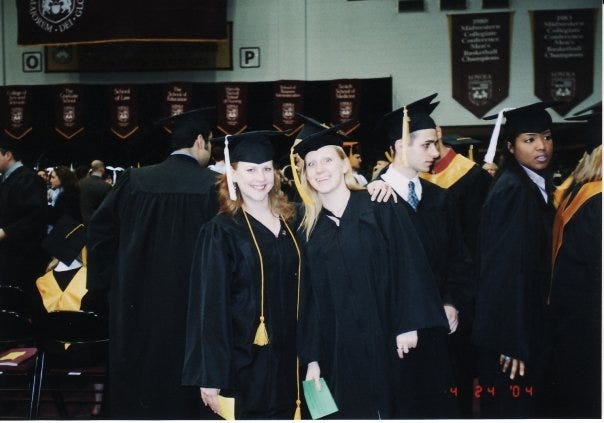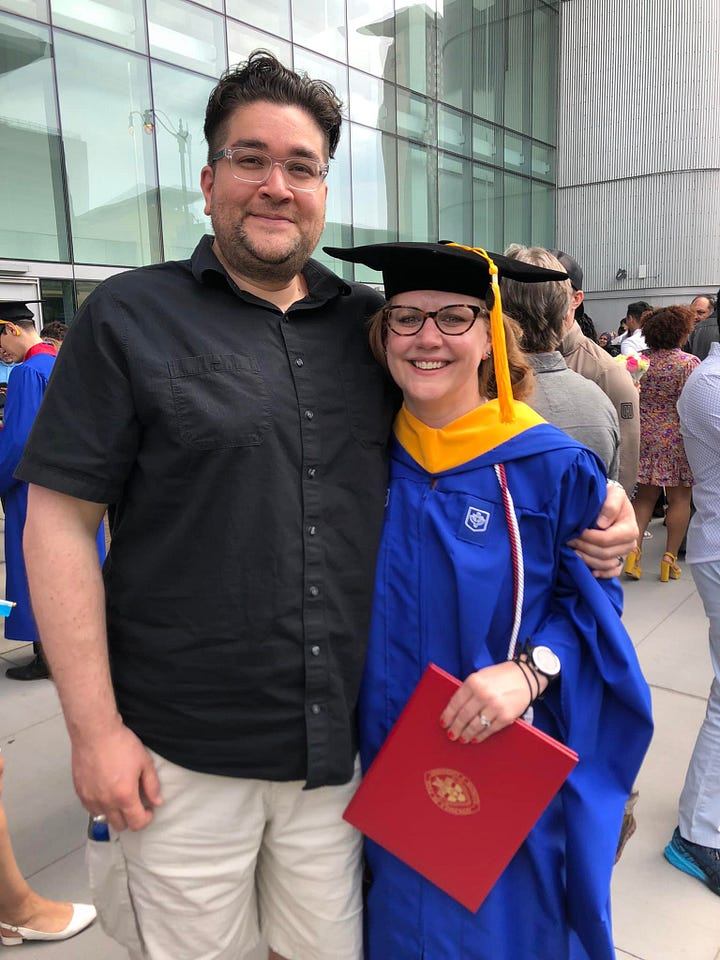Mary’s birthday post on LinkedIn got me thinking. In honor of her 25th birthday, she asked folks older than 25 to share their advice.
As someone who is … well let’s just say a bit older than 25 … here is my advice.
I finished college (undergrad) 8 years before the Harvard Business Review declared Data Science as the sexiest job of the 21st century, which is what put Data Science on most people’s radar.
But here I am today, holding a master’s degree in Data Science and having recently started my second position with the title of Data Scientist. This actually isn’t even the first job I’ve held that didn’t exist when I started my career. (Keep reading.)
How do you even prepare for a future career path that might not exist yet?
I’ve always been a curious person. It’s an important trait for anyone who wants to work in analytics and data science. Not just because your curiosity is what helps you find insights and patterns in data, but because it’s a new field and you need to be able to figure things out on your own.
And it’s the trait that led me to where I am today.


The First Time It Happened
When I graduated with a BA in Communication, my dream was to work in marketing and/or public relations for an arts organization, like a museum or symphony or ballet company.
That never happened, but I did find other interesting work, like working in the marketing & PR department of a hospital system. We were a small team handling a long list of things like internal communication, branding, external marketing, media relations, and digital channels like the website and eventually social media.
When I joined, I was (at the time) the young millennial on the team. I noticed that other companies were creating Facebook pages and YouTube videos and tweeting, and I suggested we do the same. And I was put in charge of that, partly because no one else “got” social media and partly because they didn’t think it was important enough to give to someone more senior.
With these digital channels came analytics, which I started digging into, figuring things out on my own and sharing my insights, which I used to guide our social media strategy. I was eventually promoted to Online Marketing Manager, a role that previously hadn’t existed at my company.
In fact, digital marketing & communication as a job wasn’t on my radar when I was in college - the Communication department at my university offered one class in “Online Communication” and it was mostly about chatrooms, listservs, and blogs. We had MySpace when I was in undergrad but Facebook was only just expanding to universities beyond Harvard around the time I graduated. (I’m 2 years older than Mark Zuckerberg.) I don’t remember if we were even using the term “social media” back then. But suddenly, that was my job.
In 2013, I left the hospital system for a Digital Marketing role at another company. This role was focused on website publishing and also came with opportunities for some basic data analysis.
The Second Time
The marketing team I was on grew and eventually created a small dedicated analytics team. I was moved into an analytics role, under 2 more experienced people. One had a background in statistics and R and the other had a background in business intelligence and Power BI. As someone who had only ever worked in Excel and didn’t take any quantitative classes in college beyond freshman year Calculus, I was blown away by what they could do. I wanted to learn everything I could about how to properly work with data (plus I knew my massive skill gaps would hold my career back if I continued on an analytics path), so I enrolled in a master’s degree program part-time to learn data science. And before I even graduated, I had the title of Data Scientist.
What’s the Lesson?
So, what exactly should you learn from my career path?
You don’t have to figure out your career when you’re 18 or even in your 20s. Your future career might not exist yet.
You don’t have to make a major career change if you’re unhappy but don’t know what to do instead. Keep gravitating towards the type of work you enjoy doing. You can get there in small, iterative steps. It might actually be easier that way, especially in the current job market. My motto with job searches is always “more of what I like and less of what I don’t.”
If you are willing to learn skills that other people on your team shy away from, you can develop into a very attractive candidate for future jobs.
Your career is long. I’m “only” 20 years into my career, I’ve made a lot of small changes along the way that look like one big change if you look at where I started and where I am now. But I probably have at least another 20 years before I retire - who knows where my path will take me.





I am not a data scientist. Graduated with a degree in Geography and started out in teaching. Fast forward a few years later, I ventured into education policy formulation and got my hands into data analysis. Went on to several leadership roles before coming back into policy formulation and ops, and back into data analysis again. Now I am in a recruiter's role in the education industry and I find myself leaning on data more and more to figure out where and what to do for my organization in this area. Agree with you - your career will evolve along the way, into areas you least expect. The skills you pick up along the way will come in handy time down the road.